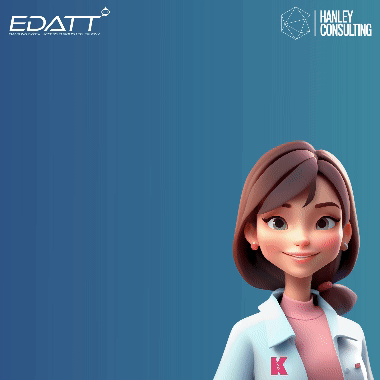Health Education England (HEE) has shared a report “for the future of general practice speciality training”, outlining ways to reform the delivery of education to GP trainees to focus on addressing health inequalities, improving technology and enhancing areas of clinical care such as mental health.
The report, ‘Training the Future GP – Enhancing Delivery of GP Speciality Training’, highlights several opportunities where training models could become more flexible to meet the needs, skills and experiences of the trainee, along with meeting demands of local populations.
‘Technology in practice’ is one of the key themes highlighted within the report, with HEE stating that “developments in technology have reshaped the provision of healthcare”. The report acknowledges how advancements in tech have improved experiences and outcomes already in areas such as record digitisation, enhanced communication, and the ability of technologies to improve patient safety in diagnosis, remote monitoring and prescribing.
The engagement exercise found that the increased use of technology to support training reform has been “widely supported” by doctors and educators, “with a consensus forming around the development of a blended approach to teaching and learning that incorporates modules harnessing the advantages of face-to-face and digital methods”.
A number of key areas of focus were highlighted through the engagement, including teaching and learning generic IT skills; using technology in enhancing patient care; remote consulting; data collection and analysis to support population health and data-driven innovation; communication skills including via video and social media; and support for patients who may struggle to use technology.
“Other proposed topics included integration of education into clinical software, and the uses and ethics of artificial intelligence,” the document states. “There was also a lot of enthusiasm for using innovation in technology to enhance learning and create additional experiences, such as the use of augmented and virtual reality platforms.”
In terms of priorities and actions, HEE proposes to pursue a number of initiatives in close collaboration with the Technology Enhanced Learning Team.
These areas include:
- Development of a primary care virtual training academy, where digital resources can be brought together to offer an integrated education experience.
- Development of a virtual national learning environment with regional and programme sections, capable of hosting resources for running online and blended programmes. This will include e-learning modules and link to other e-learning platforms and resources, enabling facilitation of online teaching and learning.
- Commissioning and developing technology to support GP training programmes, including virtual primary care (a package of real recordings of GP consultations with learning guides and links); technology and pedagogy to support live-streaming to small and large groups; high-fidelity extended reality simulations focusing on rare but important clinical scenarios; and development of a wide range of blended modules across the breadth of the curriculum.
“We recognise that providing trainees with an experience of the digital world may require them to be placed in non-traditional settings,” HEE states, adding that this could be achieved through the establishment of innovative integrated training post placements within digital primary care teams, or through placements with primary care technological partners.
Commenting on the report, health minister Neil O’Brien said: “It is important that doctors entering general practice have the necessary skills to treat both people’s physical and mental health needs. We also need a workforce which can make the best use of technology to help speed up diagnosis and treatment.”
To read the report in full, please click here.




